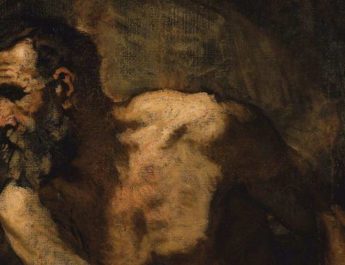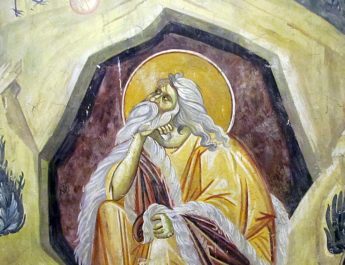Genesis 29:15-28
Ordinary A35
BibleHub
15 Then LabanA said to Jacob,B “Because you are my kinsman, should you therefore serveC me for nothing?D TellE me, what shall your wages be?”
Notes on verse 15
A “Laban” = laban. From the same as laban (white); from laban (to be white or make a brick). This is Laban, meaning white.
B “Jacob” = yaaqob. From the same as aqeb (heel, hind part, hoof, rear guard of an army, one who lies in wait, usurper). This is Isaac’s son and his descendants. The name means heel-catcher or supplanter.
C “serve” = abad. This is to work, serve, or compel. It can describe any kind of work or service (including religious devotion). Also, till or cultivate. Used causatively, it can mean to enslave or keep in bondage
D “nothing” = chinnam. From chen (grace, favor, kindness, beauty, precious); from chanan (beseech, show favor, be gracious; properly, to bend in kindness to someone with less status). This is out of favor, so it can mean without cost, without payment, nothing, vain, or useless.
E “tell” = nagad. This is to declare, make conspicuous, stand in front, manifest, predict, explain.
16 Now Laban had two daughters; the nameF of the elderG was Leah,H and the name of the youngerI was Rachel.J
Notes on verse 16
F “name” = shem. May be from sum (to put, place, set). This is name, fame, renown. A name was thought to indicate something essential about a person – something about their individuality. So, this word can also mean honor, authority, or character.
G “elder” = gadol. From gadal (to grow up, become great, become wealthy – to advance. The root meaning may be to twist in the sense of the process of growing). This is great, high, bigger, noble, old, marvelous. It can also refer to someone who is powerful or distinguished.
H “Leah” = leah. From laah (to be weary or exhausted, parched, faint, or tired; to be impatient or have a hard time; figuratively, being grieved or disgusted). This is Leah, meaning “weary.”
I “younger” = qatan. From quwt (grieved, cut off, to detest). This is least, small, young, little one. It is literally smaller whether in amount or size. Figuratively it is smaller in the sense of younger or less important.
J “Rachel” = rachel. This is a ewe or a sheep. The root of this word might mean to journey. This is where the name “Rachel” comes from.
17 Leah’s eyes were lovely,K and Rachel was graceful and beautiful.L 18 Jacob loved Rachel; so he said, “I will serve you sevenM years for your younger daughter Rachel.”
Notes on verses 17-18
K “lovely” = rak. 16x in OT. From rakak (to be tender, soft, faint, weak; to soften or mollify). This is tender in a literal or figurative sense. It could be delicate, gentle, inexperienced, refined, soft, or weak.
L “graceful and beautiful” = yapheh + toar + yapheh + mareh. Literally “beautiful of form and beautiful of appearance.” Yapheh is from yaphah (to be beautiful, decorate; root means being bright, which implies being beautiful). This is beautiful in a literal or figurative sense – appropriate, handsome, godly, pleasant. Toar is 15x in OT. From taar (to incline, extend, mark out). This is an outline and so a form or figure or appearance. Mareh is from raah (to see). This is sight, appearance, or vision. It can be a view, seeing itself, that which is seen, something real, or a vision one sees
M “seven” = sheba. This is seven or by sevenfold. It can also be used to imply a week or an indefinite number. Symbolically, this is the number of fullness, sacredness, perfection
19 Laban said, “It is betterN that I give her to you than that I should give her to any other man;O stayP with me.” 20 So Jacob served seven years for Rachel, and they seemed to him but a fewQ days because of the love he had for her.
Notes on verses 19-20
N “better” = tob. From tob (to be pleasing, to be good). This is good, beautiful, pleasant, agreeable, bountiful, at ease. This word is used for goodness as a concept, a good thing, a good person. This can refer to prosperity and welfare as well as joy, kindness, sweetness, and graciousness. So, this is ethically good, but also enjoyably good.
O “man” = enosh. From anash (to be weak, sick, or frail). This is human, humankind, another. It is mortal.
P “stay” = yashab. This is to sit and so to remain and so to dwell. It is sitting for any reason – as a judge, in order to ambush, or just sitting quietly. Causatively, this can mean settling or marrying. This can also mean continue, endure, or establish.
Q “few” = echad. Perhaps from achad (to unify, continue on a path; figuratively, to gather one’s thoughts). This is the number one, first, united. It can also be alone, altogether, a certain, a few.
21 Then Jacob said to Laban, “Give me my wifeR that I may go in to her, for my timeS is completed.”T
Notes on verse 21
R “wife” = ishshah. Perhaps related to “man” in v19. Perhaps from ish (man) or enosh (see note O above). This is woman, wife, or female.
S “time” = yom. Literally “days.”
T “completed” = male. This is fill, satisfy, replenish, accomplish, fulfill, confirm, or consecrate. It is fill in a literal or figurative sense.
22 So Laban gathered together all the peopleU of the place,V and made a feast.W 23 But in the evening he took his daughter Leah and brought her to Jacob; and he went in to her. 24 (Laban gave his maidX ZilpahY to his daughter Leah to be her maid.)
Notes on verses 22-24
U “people” = enosh. Same as “man” in v19. See note O above.
V “place” = maqom. From qum (to arise, stand, accomplish, establish, abide; rising against, getting up after being sick or asleep, arising from one state to another, becoming powerful, or rising for action; standing in a figurative sense). This is a standing, which is to say a spot or space a place. It can also refer to a locality or a physical/mental condition. HaMaqom is also a Jewish name for God – the place, i.e. the Omnipresent One.
W “feast” = mishteh. From shathah (to drink literally or figuratively; a drinker). This is drink or the act of drinking. So it is a feast or banquet, as occasions with drinking.
X “maid” = shiphchah. Root may mean to spread out – it would be the same root used in mishpachah, which means family or clan. This is maidservant, female slave, or female bondslave.
Y “Zilpah” = zilpah. 7x in OT. Perhaps from zalaph (drip, sprinkle, pour – as fragrance or myrrh does). This is Zilpah, meaning “drop” or “sprinkle.” See https://www.abarim-publications.com/Meaning/Zilpah.html#.XwCu7yhKhPY
25 When morningZ, AA came, it was Leah! And Jacob said to Laban, “What is this you have done to me? Did I not serve with you for Rachel? Why then have you deceivedBB me?”
Notes on verse 25
Z “morning” = boqer. From baqar (to seek, plow, break forth, admire, care for). This refers to the break of day. So it is dawn, early, morning, or morrow.
AA {untranslated} = hinneh. From hen (lo! Behold! If, though; an expression of surprise). This is to draw attention, show suddenness or surprise, or to emphasize the importance of the coming statement. See! Lo! Behold!
BB “deceived” = ramah. 13x in OT. This is to hurl, shoot, carry, or throw. Figuratively, it is to beguile, delude or betray. It can also refer to an archer.
26 Laban said, “ThisCC is not done in our countryDD—giving the youngerEE before the firstborn.FF 27 Complete the weekGG of this one, and we will give you the other also in return for servingHH me another seven years.” 28 Jacob did so, and completed her week; then Laban gave him his daughter Rachel as a wife.
Notes on verses 26-28
CC “this” = ken. Perhaps from kun (properly, in a perpendicular position; literally, to establish, fix, fasten, prepare; figuratively, it is certainty, to be firm, faithfulness, render sure or prosperous). This is to set upright. Generally used figuratively to mean thus, so, afterwards, rightly so.
DD “country” = maqom. Same as “place” in v22. See note V above.
EE “younger” = tsair. From tsaar (to be brought low, small, little one; figuratively, be insignificant or ignoble). This is little, young, least, younger, few in number, low in value.
FF “firstborn” = bekirah. 6x in OT. From bakar (to bear fruit, be firstborn, firstling, that which opens the womb, give the birthright to). This is firstborn – specifically referring to a firstborn daughter.
GG “week” = shabua. Related to “seven” in v18. From sheba (see note M above). This is literally a unit of seven so it is used to mean seven days, i.e. a week, or a period of seven years.
HH “serving” = abodah. Related to “serve” in v15. From abad (see note C above). This is labor, service, bondage, job, servitude, worker. It can refer to any kind of work.
Image credit: “Jacob’s Marriage” by Masaru Horie, 2009




